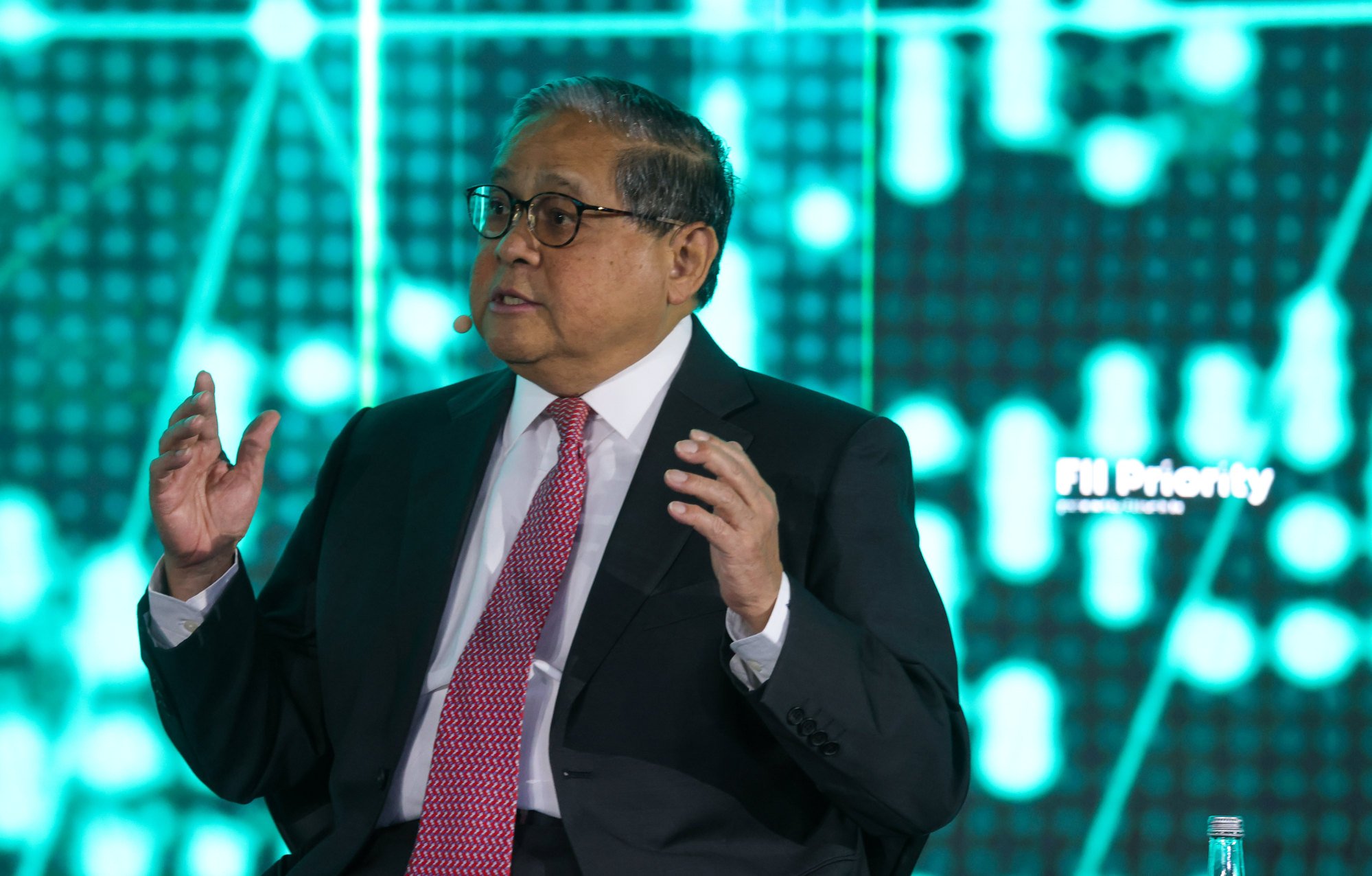Other observers also compared this week’s meeting to Xi’s previous interactions with entrepreneurs, as well as the changing economic environment.
“There seems to be a pattern that at each key juncture of economic development and reforms, Xi will meet business leaders,” said a Beijing-based observer who spoke on the condition of anonymity due to the sensitivity of the issue.
The top leadership wants entrepreneurs to solidify confidence and efforts to build and sustain the growth momentum
“So the top leadership wants entrepreneurs to solidify confidence and efforts to build and sustain the growth momentum.”
The observers also pointed out that after Xi met with entrepreneurs in 2018 and 2020, Beijing then announced pro-business and pro-growth policies.
Among the attendees were State Power Investment Corporation chairman Liu Mingsheng, as well as prominent private sector business leaders including Anta Sports chairman Ding Shizhong and Transfar Group chairman Xu Guanju.

Meanwhile, Victor Fung, chairman of Hong Kong-based supply chain management conglomerate Fung Group, and Bosch China president David Xu Daquan represented Hong Kong and overseas investors.
Economists Zhou Qiren from Peking University, Zhang Bin from the Chinese Academy of Social Sciences and Huang Hanquan, the head of the Chinese Academy of Macroeconomic Research, also attended the meeting.
Reform of China’s electricity system was discussed, along with development of venture capital, upgrading traditional industries, better governance of private enterprises, Hong Kong being better integrated into China’s development and improving the business environment for foreign firms, according to a report from the state-backed Xinhua News Agency.
Business leaders also took the rare opportunity to offer their advice on various issues, with Transfar founder Xu telling Xi that private businesses are faced with significant challenges and that it is critical to improve corporate governance.
“It’s necessary to improve the operating capabilities and corporate governance structures and encourage qualified private enterprises to establish modern governance systems,” said Xu, who is a well-known voice in China’s private sector, according to a statement from Transfar, a leading chemical products manufacturer in Zhejiang province.
“This matter needs to be actively promoted on the national level.”
Such a national system can also provide guidance when leading entrepreneurs pass the baton onto their next generation
Xu suggested that the government could take the lead with the endeavour, including the establishment of a national evaluation and support system for modern corporate governance of private enterprises.
“China’s private firms should have their own development model under the Party’s leadership and the state can promote a good governance evaluation and support system,” Xu added.
“With such a system in place, enterprises can follow it and seek support, society can supervise it and national policies can also be better aligned for better effects.”
Xu also said the changes could foster the “transmission” of the advantages of China’s national macroeconomic governance to corporate levels to improve internal management of enterprises.
“Such a national system can also provide guidance when leading entrepreneurs pass the baton onto their next generation, and for businesses to foster a technology and market-led growth model and assume more social responsibilities,” said Xu.
Zhu from the China Europe International Business School said Xu’s proposals could be adopted when Beijing drafts new measures to revive private sector confidence and investment at the third plenum.
The session traditionally sets economic strategy for the next five to 10 years, and is often seen as the most important of the seven party gatherings held over the Central Committee’s five-year cycle.
The meeting, which will span up to five days, will be attended by the 376 full and alternate members of the new Central Committee.
Electricity market reforms are one area that investors are closely watching, with slow progress being made to form a unified national electricity market despite efforts by the National Development and Reform Commission to expedite changes in 2022.
Beijing’s reform goal is to allow manufacturers to participate in the electricity trade, a pledge made in line with the government’s push to establish a competitive electricity market based on market principles by separating ownership of grids from trade.
“We can see what Beijing could be cooking this time, having heard recommendations from prominent business leaders, together with the input from leading economists,” added Zhu.
The anonymous Beijing-based observer also said that the expectations for July’s third plenum had been further raised by the high-profile meeting between Xi and the entrepreneurs, but he also warned that sweeping changes are off the table.
“People should bear in mind Beijing won’t compromise on Party leadership and fundamental political principles,” he added.











